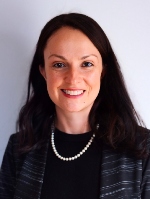By Megan Cannone, LCSW-C, OSW-C, OPN-CG
As a social worker, I have spent my career guiding patients and families through some of the most challenging moments of their lives. Over the years, I have worked in hospice agencies where registered nurses served as my supervisors. While they did not share my social work background, their direct care experience often fostered a mutual understanding of patient needs. However, it was in the oncology field where I encountered an ongoing pattern: being the only social worker on the team and reporting to supervisors who had little understanding of our profession and appreciation for the depth of our role.
Doctors, nurses, and administrators rarely grasp the full extent of our responsibilities. We manage overwhelming caseloads, navigate dwindling resources, complete extensive documentation, write reports, attend events, lead support groups, participate in meetings, and commute – often with unrealistic deadlines. Additionally, we must complete continuing education requirements, typically at our own expense and on our own time.
One of my greatest frustrations was that my value was measured by numbers rather than the quality of my work. I frequently found myself explaining and justifying my daily responsibilities to individuals who had never stepped into a patient’s room or comforted someone entering hospice care. The increasing micromanagement became stifling. As I began discussing these issues with social workers I supervised, I realized how widespread they were. Many shared similar frustrations, feeling undervalued and misunderstood by leadership.
The final push came when leadership questioned why I couldn’t simply schedule a patient for another day – completely overlooking the urgency and unpredictability that often defines our work. There was no space or understanding for emergencies, no flexibility in how my days might unfold. I felt increasingly micromanaged by someone who had never provided direct care and had little insight into the real-time demands of supporting patients through crisis. These ongoing dynamics ultimately led me to step away from the nonprofit world and transition into private practice – a decision that has brought me immense fulfillment.
Many of my patients chose to follow me. There were no conflicts of interest during this transition – no paperwork, signatures, or barriers to care. Perhaps that’s because I came from a nonprofit setting, or maybe because everyone was so overwhelmed by the volume of work, they were simply grateful that continuity of care could be maintained. In private practice, I finally have the capacity to be fully present during sessions without the constant pressure of administrative demands.
Right now, I primarily use Cognitive Behavioral Therapy (CBT) and Acceptance & Commitment Therapy (ACT), with a focus on grief therapy. I also continue to assist patients in connecting with community resources and offer to collaborate with care teams when appropriate. But for the first time in my career, I feel like the social work profession is being taken more seriously. For too long, social workers were relegated to the roles of discharge planners or case managers, their full range of skills overlooked or underutilized.
During a recent call with a cancer collaborative on advance care planning, the conversation turned to community health workers and how to make them billable. I asked the group – composed of doctors and hospital leaders – what they were currently using their social workers for and if they were aware that social workers can bill, have NPIs, and are credentialed to provide care independently. The look of confusion was telling. They were shocked to hear that I bill insurance, including Medicaid and Medicare, as a licensed clinical social worker. That moment underscored just how far we still have to go in educating healthcare systems about our capabilities.
Private practice has allowed me to provide patient-centered care in a way that feels authentic and sustainable. The absence of an inflexible system has enabled me to collaborate more effectively with care teams and offer the emotional support that drew me to social work in the first place. I can now serve, advocate, and connect with patients on terms that prioritize their needs.
I am deeply grateful for my past experiences – they shaped my professional growth and reinforced my commitment to oncology social work. I remain engaged in cancer-related workgroups and committees, ensuring my expertise continues to contribute to the field. My hope is that the medical field will increasingly recognize the value of social workers in leadership roles. Elevating social workers within healthcare teams will strengthen interdisciplinary collaboration, improve patient outcomes, and help prevent the burnout that drives so many dedicated professionals away.
The challenges faced by social workers under non-social work leadership are significant, but they also highlight the necessity of advocacy within our profession. As more social workers step into leadership roles, I believe we will foster environments where our training, ethics, and expertise are not only understood but respected. Ultimately, social workers and their patients deserve care that is guided by the principles of social work – ensuring dignity, support, and empowerment on both ends of the relationship.
If you’d like to connect to talk more about this article and transitioning to private practice, please contact me at megan.cannone@gmail.com.

